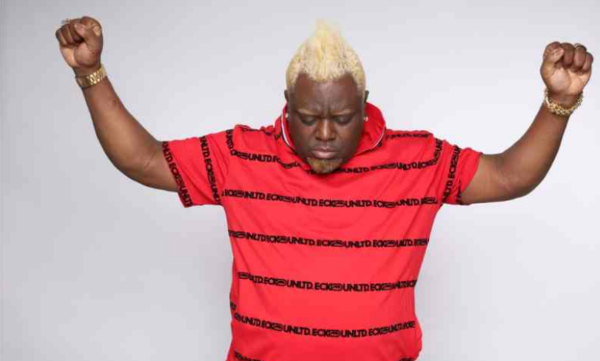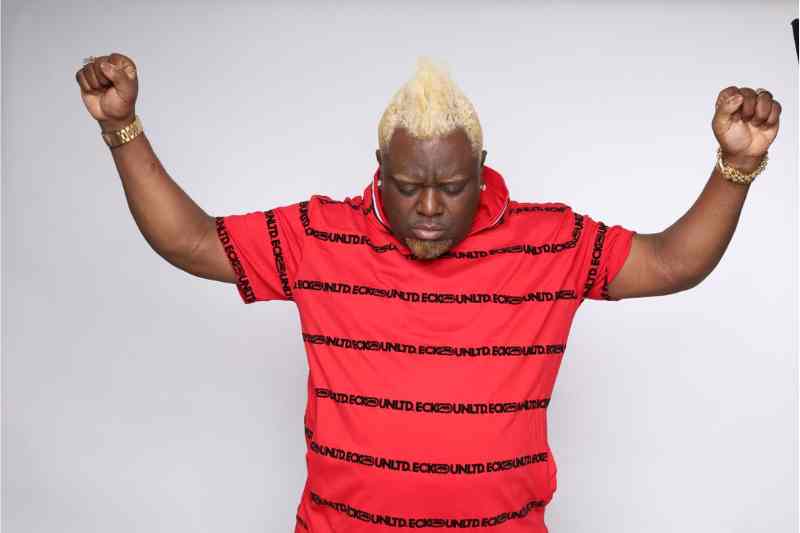
Meet Farley ‘Jackmaster’ Funk: 2024 Chicago Defender Men of Excellence Honoree
Farley “Jackmaster” Funk is an influential pioneer in the history of house music in Chicago. He was a prominent DJ and producer during the 1980s. Born Farley Keith Williams, he adopted the stage name Farley “Jackmaster” Funk as he rose to fame.
Farley gained recognition for his DJ skills and his productions, which often featured a raw and energetic style that became characteristic of the Chicago house sound. One of his most famous tracks is “Love Can’t Turn Around,” a collaboration with vocalist Darryl Pandy, which became a massive hit in 1986 and is considered a classic of the genre.
Farley’s contributions to house music extend beyond his productions.
He also shaped the scene through his DJ sets at legendary Chicago clubs like The Playground and The CopHerBox &. His mixing style on radio stations WBMX & WGCI which combined disco, funk, and electronic sounds, helped define the sound of Chicago house and influenced countless DJs and producers worldwide.
Farley “Jackmaster” Funk’s impact on house music is undeniable, and his legacy inspires generations of electronic music enthusiasts.
Marshelle Sanders: What does it mean to you to be a Men of Excellence honoree?
Farley “Jackmaster” Funk: It means that I’m being recognized by not only my peers but a board of people who recognize excellent talent and exceptional gifts and that gifts come from above, and now they have been showcased to a room full of people. Where do I want to go with that? It feels good to recognize the very talent that they’ve heard over the 40 years and to be able to put a face to it. That is excellence.
Marshelle Sanders: What is your approach in life and in your career?
Farley “Jackmaster” Funk: My approach to life was different in the beginning. I died totally for attention. Okay, I went on to realize that I loved doing what I was doing. I heard my mother say that it’s amazing for you to be able to do a job that you love to do. Then, shortly after that, I got put out of the house. It was time for me to get out there and leave the nest and pay bills.
Then, I had a double mission: to be great at what I was doing and make money.
Then, giving my life to the LORD in 1997., I realized that my job was also a ministry. It was the thing of spreading good music, a good message and giving people an alternative from some of the things I witnessed over the years and knowing that house music helped save some lives. They could have been on the street shooting and fighting, but they were in a Farley party instead. Praise GOD.
Marshelle Sanders: Tell us a good memory about one of your Farley Parties.
Farley “Jackmaster” Funk: One great example of a Farley party was at the Playground. And there was a line? It’s kind of hard to say this happened one time because I was there for three years. There was a line that came from north and south. The Playground held 1,700 people on the second floor and 1,700 people on the first floor. It’s still the biggest club Chicago has ever seen. For me to be able to go to work there and be the main source of entertainment was the Farley Party. When people came there, they lost their minds because it was the getaway place for young people to go to. To know that I was the person in control of that was an amazing day.

Marshelle Sanders: What was the Chicago house scene like in the 1980s? When you first started, what did that look like?
Farley “Jackmaster” Funk: At the very beginning, in the inception of creating house music, before there was house music, we just played disco music, Rock, and whatever we felt, you know. We didn’t have a form yet; we were creating that form. We came across a thing to create house music one day at the Playground. I brought my drum machine, played it with a record, and said, ‘Wow! Listen how hard that sound hits, the record mixed with a drum machine. And we said, ‘Well, let’s start making more of this.’
Jesse Saunders did the same thing as I did. Jesse ended up releasing the very first record, and it was a very competitive thing for us. Competition is the very nature of a DJ because a DJ is like a basketball player. And when you get on a court, which is when you get on a dance floor, every DJ wants to do his best whether he’s your friend or not. So, you give it your all because you do know that it’s very competitive, and you want folks to enjoy themselves.
In the 80’s, it was a very competitive time. Music was coming from everywhere — Chicago, New York, Detroit. It came from England. It came from Europe. It came from everywhere. It was a very beautiful moment for dance music in the city of Chicago, and the Hot Mix 5 kicked off the Taste of Chicago. Our city was very segregated.
Because of the Hot Mix 5, we brought the whole city together to the Taste of Chicago. And we began to melt racism, bringing people together through the music because, in the decade of 80s, that was truly a racist time in Chicago.
Last but not least, the Hot Mix 5 came to the Playground, and at the Playground, we held 3,400 people. We had people of all nations because we were on the radio station WBMX, which the city listened to, and it brought everybody to this club.
And there wasn’t one fight. Everybody left in harmony and enjoyed themselves as we brought everybody together. I started DJing on WBMX radio in 1981, and I’m still on the radio here in 2024 for radio station V103 as I am the world’s longest house music DJ on the radio (laughs)—the Goat.
Marshelle Sanders: “Love can’t turn around.” Tell us the story behind that track.
Farley “Jackmaster” Funk: Okay, the story behind “Love Can’t Turn Around” is Farley Jackmaster Funk with a little help from Jessie Saunders. We go back, as I said, to the Playground and beyond. I wanted to produce a remake of a song by Issac Hayes, so we went to the studio, and we needed someone to sing the song. My lawyer, the late great Jay B. Ross, told me about a singer named Darryl Pandy.
I invited Darryl down to the studio. We messed around with the record, and by it being a remake record, we didn’t understand what direction we wanted to go with it. But once we got in the studio and started writing, the word “Love” came up. Once the word “Love” came up, we continued to go in that direction — to want to write a song about love and relationships. And that song took us around the world. It was the very first record in history to be on the pop charts in England and Europe, Africa and the rest of the world.
Marshelle Sanders: What’s a guiding belief or principle that you have that contributed to your success?
Farley “Jackmaster” Funk: I’m blessed and know that GOD could have chosen someone else other than me. So, I’m forever grateful to the LORD for blessing me to be who I am, The king of House Music.
Marshelle Sanders: What would you like to accomplish in the future?
Farley “Jackmaster” Funk: We plan to open the House Music Museum and Hall of Fame. Also, we are to open the Steppers Music Museum and Hall of Fame. I’m the owner of that as well. This year is our inaugural House Music Parade and Festival this year on the 31st of August.
I want to see the next generation of DJs keep house music alive for the next 40 years. Along with my wife, Delece Williams, and the proclamation by Honorable Mayor Brandon Johnson, we have created House Music Month to be celebrated in August every year. Then there’s the House Music license plate and giving opportunities for DJs to DJ at both airports, including doing the DNC and also releasing the Chicago 40 year 40 song LP for this summer.
Marshelle Sanders: What do you have to say to the younger generation that you would like to pass the baton to?
Farley “Jackmaster” Funk: I hope that people will follow their hearts because while following their hearts, they’ll be listening to GOD. If that’s GOD who has given you the direction of being in music, give it your all. Be excellent because this won’t be easy. You truly have to follow your heart and know that it’s GOD who blessed you to do it. It is not going to be easy, but I believe that you can achieve it if your heart is really in it.
My legacy is to help future musicians, artists, and DJs understand that if you keep on pushing and believing in your gifts, like in any other career, you must believe that you belong. And if you believe you belong, stay there and keep fighting. Because one day, you can be the Master of what you do. – Farley “Jackmaster” Funk
Marshelle Sanders: What do you hope your legacy will be in the music industry?
Farley “Jackmaster” Funk: Don’t ever give up on your dreams. My legacy is that I was blessed to create and accomplish more than I ever dreamed I could. I am the only man on earth with a street sign that happens to be in the 3rd largest city in America in the downtown area named The King Of House Music, and a 2nd street sign on the same block as Buckingham Fountain named the HOTMIX 5.
I was the first artist in the world to chart for house music in England, Europe, Africa, and everywhere else, and was top 10 in America. I was the first to win the British awards for House music, the first house music DJ to be honored with the Lifetime Achievement Award for the Dance Music Hall of Fame and received the Brand Laureate Lifetime Achievement Award in Malaysia. I am also featured in the National Museum of African American History and Culture. I created the very first house music record label, House Records. I was the first DJ in history to introduce House Music on the radio in 1984, breaking the sound to millions of listeners daily and every Friday and Saturday night on radio station WBMX 102.7 FM. I received the 2024 President Biden Presidential Lifetime Achievement Award. We will stop here as it could go on and on, but let my Praise be to GOD for it all.
Sorry, the comment form is closed at this time.
